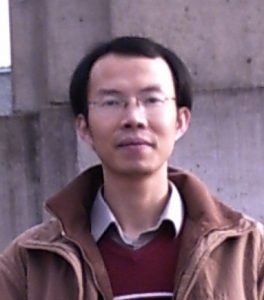 Dr. Jin Wang, Professor and UNUM Chair of Excellence in Applied Mathematics, was recently awarded a research grant from the National Institute of General Medical Sciences under the National Institutes of Health (NIH). The amount awarded is $340,000 and the project runs from 2019 to 2022. With the support of this NIH grant, Dr. Wang will study the dynamics of cholera using mathematical modeling and numerical simulation.
Dr. Jin Wang, Professor and UNUM Chair of Excellence in Applied Mathematics, was recently awarded a research grant from the National Institute of General Medical Sciences under the National Institutes of Health (NIH). The amount awarded is $340,000 and the project runs from 2019 to 2022. With the support of this NIH grant, Dr. Wang will study the dynamics of cholera using mathematical modeling and numerical simulation.
Cholera is an acute waterborne infection characterized by severe diarrhea. Although the disease has been known since ancient times, cholera continues to devastate impoverished populations that have limited access to clean water and sanitation resources. Seven cholera pandemics have occurred in the past 200 years, with the seventh pandemic originating in 1961 and ongoing at present. In particular, more than 1 million cases were reported during the recent Yemen cholera outbreak in 2017. The World Health Organization estimates that currently cholera affects 3 – 5 million people worldwide and causes hundreds of thousands of deaths each year.
The persistence of cholera indicates that our current knowledge and control strategies for this disease are inadequate. Particularly, our understanding of the bacterial dynamics associated with Vibrio cholerae, the causative agent for cholera, remains limited at present. To improve such understanding, Dr. Wang plans to conduct a deep investigation into the evolution, growth and multiplication of the pathogenic bacterium Vibrio choleraeunder various biotic and abiotic conditions, based on mathematical and computational modeling. Meanwhile, Dr. Wang will collaborate with Dr. David Giles, Associate Professor of Biology, and Dr. Bradley Harris, Assistant Professor of Chemical Engineering, on this project. Drs. Giles and Harris will conduct lab experiments to validate the modeling results and to guide the development and refinement of the mathematical models. Overall, this project represents an interdisciplinary effort and highlights the application of mathematics in the biomedical fields.
Leave a Reply